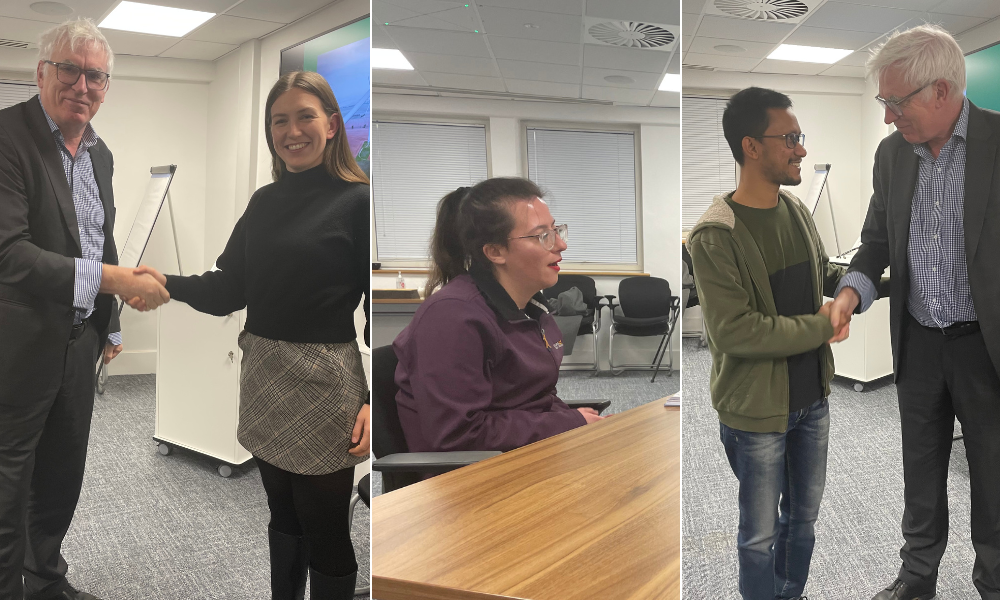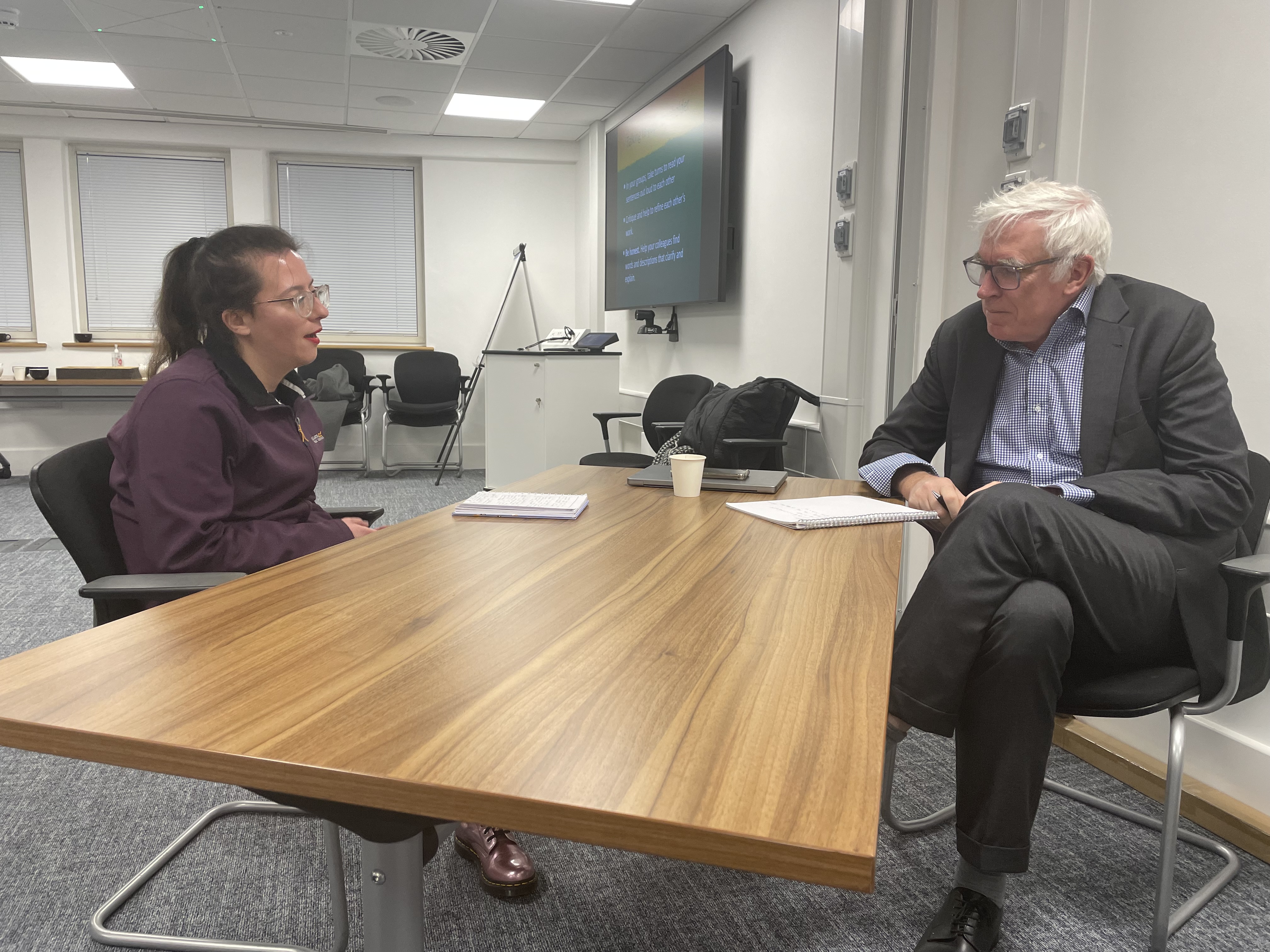Crossing Boundaries: from research to impact
Recent News
- From beans to minerals: the new projects getting science into policy
- Hunger on our doorstep
- Place-based working to meet national well-being and sustainability goals

In November 2024, Agile held a “Crossing Boundaries” training session, aimed to identify key stakeholders and hone research communication skills. The session was refined with the trainers Claire Bolderson and Caroline Finnigan to target the needs of early-mid career researchers who wish to improve their impact. In this post we hear from Tiril Rahn, Megan Smith-Dobric, and Subham Basak about the training session.
Tiril Rahn
DPhil finalist in International Relations: My research explores how governments can restrict the UN’s access to civilians in armed conflict.
What did it feel like to break your ideas out of academia into “real world” conversations?
This was one of the best workshops I’ve attended in Oxford. Brainstorming in groups on how to simplify and communicate our research with practical examples and exercises gave me clear directions in how to better engage outside of academia. It was hands-on and practical. Practicing a 5-minute cold meeting with a minister and pitching in front of everyone was invaluable. I became more aware of body language, tone, speed, and the importance of starting with the basics. At the workshop, I realised my research and its pitch had been convoluted. After the workshop, I rephrased my findings to highlight general trends.
Anything else to say?
At the workshop, I realized that even when I thought I was simplifying my work, I was still using academic concepts. This workshop pushed me to return to the core question of my research and clear language. The facilitators were incredibly skilled. Listening to their years of journalism experience was a masterclass in clear communication in itself.

Megan Smith-Dobric
DPhil student in Law: My research examines the minimum age of criminal responsibility specifically in England and Wales, and explores whether our relatively low age is in conflict with the UN Convention on the Rights of the Child.
What did it feel like to break your ideas out of academia into “real world” conversations?
As my thesis deals with an area of government policy, it was crucial for me to learn how to ‘simplify’ my language for policy-makers and communicate my research in a manner that would be relevant outside of the academic sphere. This training helped me to think about the issues that matter to politicians (e.g. economic and public interest considerations) and how I should best frame my ideas. I also gained valuable experience through the interactive workshop, which simulated a real-life meeting with a government minister. The exercise and the feedback received made me more aware of non-verbal communication—how elements like eye contact, tone of voice, body language, and pacing can ‘make or break’ a meeting. I also learned the importance of preparation, whilst recognising that entering a meeting with a rigid, pre-prepared speech is not always the best approach.
Anything else to say?
I found this session to be incredibly helpful and look forward to similar training opportunities in the future.
Subham Basak
DPhil student in International Development: My research is on the role of the smartphone-Internet in shaping the everyday lives of young low-privileged men in Kolkata (India).
What did it feel like to break your ideas out of academia into “real world” conversations?
I research on a topic that has everyday impact for the participants of my study. My work has implications across livelihood chances, gender and political attitudes of under-researched population groups in the Global South. Through this opportunity, I learned to think quickly about real world impact of research, communicate ideas in a simulated high-pressure environment and earned excellent feedback for further improvement. This workshop really made me think of opportunities and challenges for my topic outside academia and encouraged me to think of future ventures in similar directions. The facilitators were passionate and well-prepared to handle a broad range of research topics and communicate personally with the participants. Not to mention, the incredibly well-designed and innovative activities that pushed me to think and apply myself harder.
While other aspects of academic training focus on academic rigour bound by academic regulations and preferences, the connection with and the accessibility of research for the larger society are better addressed through such impact workshops which place them at their core. I believe that this is important for academics who, like myself, want their research to not just enrich academic knowledge but also the lives of the researched people.
Anything else to say?
A strong and durable connection between theoretical and practical fields is probably what the world needs most right now to tackle the many challenges of our time. Making academics think about the possibility of real-world impact of their research could go a long way to expand the boundaries where rigorous research holds relevance and applicability. It also enriches other fields to be able to learn valuable insights from the knowledge of academia. To conclude, I heartily appreciate the thought behind such ‘impact’ workshops and hope to see them expand more in the future, continuing their own impact.


